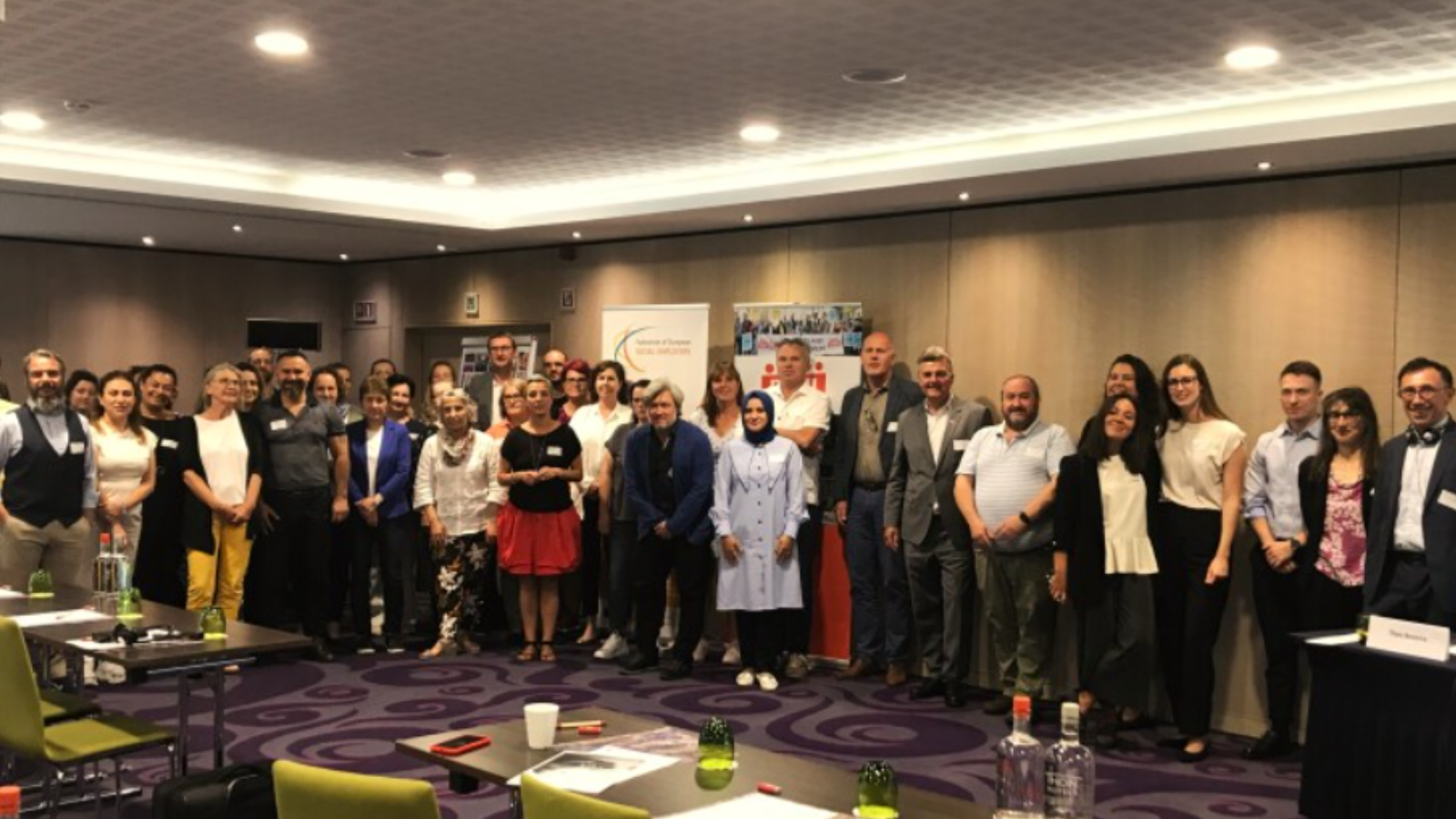Addressing workforce needs and challenges in social services to implement the European Pillar of Social Rights and the forthcoming EU Care Strategy

On 5 July, the Social Employers and EPSU hosted their second joint thematic seminar in the framework of the FORESEE Project, to discuss the workforce needs and challenges in social services.
Gregor Tomschizek, President of the Social Employers opened the event. This was followed by the presentation of the key results from the Social Employers survey on staff shortages in social services across Europe. The survey shows a strong increase in staff shortages since 2021 in most of EU countries. The results also highlight the sub-sectors and job positions most affected by staff shortages, as well as some of the main causes for staff shortages.
Elisfa presented some key findings from the soon to be released report on the “Current attractiveness challenges in the social services sector” drafted together with UNIPSO. It is based on a questionnaire, literature review and on interviews with 11 employers’ and 3 employees’ organisations. The report highlights five key topics regarding the attractiveness in the sector: competition, image and communication, training and career paths, quality of life at work and recognition. It also provides a set of good practices and initiatives from social partners, to overcome attractiveness challenges in the social services sector.
The second part of the morning, focused on the forthcoming European Care Strategy, started with a presentation of the Social Employers and EPSU joint Position Paper calling for a Strategy that addresses and anticipates workforce needs and challenges in the sector. This was followed by an intervention of Dana-Carmen Bachmann, Head of the Modernisation of social protection systems Unit at the EU Commission. Her presentation provided an overview on the Long-term care (LTC) workforce challenges, which will be addressed in the forthcoming European Care Strategy, to be published on September 7, and on the initiatives to address these challenges at EU and national level.
The afternoon session brought examples on how to tackle staff shortages across EU Member States. Tina Weber, Research Manager Employment in Eurofound, presented good examples from other sectors to tackle staff shortages, that could be used in the social services sector. The presentation also provided an overview on the Eurofound classification of measures to address shortages.
To finalise the event, employers’ and employees’ representatives from 4 EU countries: Isabelle Le Nan, SCOP Initiatives Formation (FR), Juan Vela, President of Grupo Social Lares (ES), Johan Van Eeghem BBTK (BE), Sandra van den Braak, Maaike Piet and Bert de Haas, FNV (NL) presented their experiences and good practices to face the workforce challenges in the sector.
The presentations highlighted the importance of investment in the sector, trainings adapted to the employees’ needs, good working conditions, better recognition of the carers’ and services’ work, and the key role of social dialogue to face the current and future workforce challenges in the sector.
Adam Rogalewski, Policy Officer Health and Social Services, EPSU closed the conference highlighting the Social Employers and EPSU joint work and the need for employers and employees to also work together at national level.
